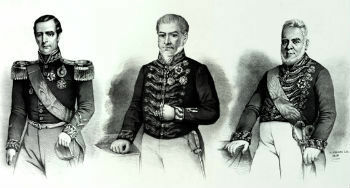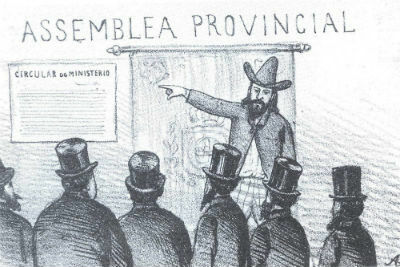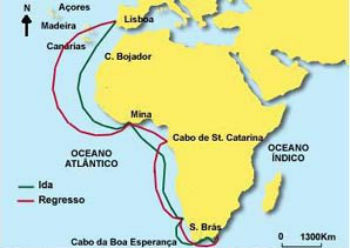O Additional Actof 1834 it was a set of changes introduced in the Constitution of 1824.
Historical context

Members of the Trina Regency: Brigadier Francisco de Lima e Silva and senators José Joaquim Campos and Nicolau de Campos Vergueiro.
Brazil was going through a troubled time. With the abdication of Dom Pedro I, the country was experiencing a power vacuum, as the heir to the throne was only five years old. To govern the country, a Triune Regency was installed and this period was known as Governing Period.
However, there were several ideological currents that disputed space in the political scenario.
Likewise, separatist rebellions broke out in the country. In the south, the Farrapos War was getting stronger and threatened with the secession of the provinces of São Pedro do Rio Grande and Santa Catarina. To the north, the Cabanagem threatened landowners and merchants with its popular demands.
Read more about War of the Rags and cabin.
Additional Act of 1834
The Additional Act was a constitutional amendment, the result of an agreement between liberals and conservatives. Some institutions of the
1824 Magna Carta they were maintained as the Senate for life and the census vote, but there were significant liberal changes.Below we highlight the main changes of the Additional Act:
- The provinces would have greater autonomy;
- Provincial Legislative Assemblies were created and deputies were elected for two years;
- provincial governments could tax, hire and fire employees;
- the Trina regency became Una;
- the regent would be elected by secret ballot for a four-year term;
- the Council of State was extinguished;
- O Moderating Power – exclusive attribution of the Emperor – was suspended;
- the creation of the Neutral Municipality of Rio de Janeiro. The capital of the Province of Rio de Janeiro would be the city of Niterói.

Election for the first Legislative Assembly of São Paulo in 1835.
Interpretive Act of 1840
In 1837, without political support, Diego Antônio Feijó resigned as Regente Uno. He then assumes Araújo Lima. Conservative, Araújo Lima defended the strengthening of central power as a way to end the provincial rebellions.
Therefore, the legislators enacted the Interpretative Law of the Additional Act which determined:
- Creation of two political parties: Conservative and Liberal;
- decrease in the autonomy of the provinces obtained with the Additional Act of 1834.
Given the growing conflict in the south of the country, the War of the Rags, liberals began to support the anticipation of Dom Pedro's majority. Again it was necessary to modify the law to make this possible and this fact became known as the Coup of Age.



